Introduction
Nnamdi Azikiwe University is an important institution of higher learning in Nigeria. It plays a key role in academic, scientific research and social services, and has trained a large number of outstanding talents for Nigeria and the surrounding areas.
Overview
Student size: The school has a large student population, including many undergraduate, master and doctoral students, with a total number of tens of thousands of students, making it one of the largest universities in Nigeria.
Subject areas: The disciplines are relatively complete, covering medicine, engineering, agriculture, humanities and social sciences, natural sciences and other fields, providing students with a variety of professional choices.
History and establishment time
The university was established in 1992 and named after Nnamdi Azikiwe, the first president of Nigeria. It was developed on the basis of the former Anambra State University and occupies an important position in the development of higher education in Nigeria.
School strength
Faculty: It has a team of highly professional faculty, including many experienced professors, associate professors and teachers with overseas study backgrounds. They play an important role in teaching and scientific research, providing students with high-quality education.
Research achievements: Scientific research activities have been carried out in multiple disciplines and a series of achievements have been made. For example, in medical research, research is conducted on topics such as the prevention and treatment of common local diseases; in the field of agricultural research, efforts are made to increase crop yields and agricultural technology innovation. The school also encourages teachers and students to participate in domestic and international academic conferences to enhance academic influence.
International cooperation: It has established cooperative relations with many well-known international universities, and carried out student exchange programs and joint scientific research cooperation. These cooperative projects provide a good platform for students to broaden their international horizons and for teachers to exchange academic experience.
Nature of the institution
This is a public university funded and managed by the Nigerian government, and it plays an important role in promoting the popularization and development of national higher education.
Educational philosophy
Adhering to the concept of cultivating high-quality talents with all-round development, it focuses on the accumulation of students' academic knowledge, the training of practical ability and the cultivation of social responsibility. The school emphasizes student-centeredness and encourages students to actively participate in classroom discussions, scientific research projects and social practice to improve their comprehensive quality.
Key laboratories and disciplines
Key disciplines: Medicine and agricultural sciences are its advantageous disciplines. The medical major has made remarkable achievements in medical talent training and medical research, and has contributed to Nigeria's medical and health care; the agricultural science discipline has outstanding performance in agricultural technology promotion and crop variety improvement.
Key Laboratory: There is a medical research laboratory equipped with advanced medical equipment for disease diagnosis, pathological research, etc.; the agricultural experimental base is used for scientific research activities such as crop planting experiments and agricultural technology demonstrations.
Faculty and College
The school has several colleges, such as the School of Medicine, the School of Agriculture, the School of Engineering, the School of Humanities, the School of Science, and the School of Social Sciences. Each college has several departments covering specific professional fields, forming a relatively complete discipline system.
Ranking
It is at the forefront of the domestic university rankings in Nigeria. In terms of international rankings, although there is still a gap with the world's top universities, it also has certain competitiveness in the university rankings in Africa, and its ranking position varies depending on different ranking agencies and evaluation criteria.
Fees
Tuition fees: For Nigerian students, tuition fees are relatively low, and the government will provide certain funding policies. For international students, tuition fees will vary according to different majors and degree levels. Generally speaking, the tuition fees for majors such as medicine and engineering are relatively high, and those for liberal arts majors are relatively low.
Living expenses: The cost of living in the area is relatively reasonable. The living expenses of students mainly include accommodation, food, transportation, etc. The overall living expenses are moderate under the local economic level.
Campus environment
Architectural style: The campus buildings combine modern architectural style with local characteristics. The teaching buildings, libraries and other buildings are beautifully designed and fully functional.
Campus facilities: It has complete teaching facilities, including modern classrooms, laboratories, libraries (rich collections of books covering various disciplines), computer centers, etc.; living facilities include student dormitories (providing different accommodation conditions), canteens, gymnasiums, sports fields, etc., to meet students' learning and living needs.
Natural landscape: The campus is well greened, with large lawns, trees and gardens, creating a quiet and beautiful learning and living atmosphere.
-
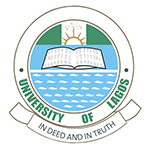
University of Lagos
-
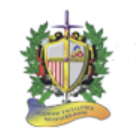
Benson Idahosa University
-
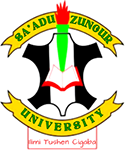
Bauchi State University
-
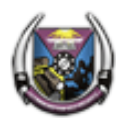
Federal University of Technology, Akure
-

Tai Solarin University of Education
-
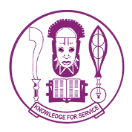
University of Benin
-
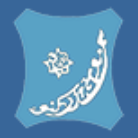
Bayero University Kano
-

Ahmadu Bello University
-
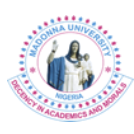
Madonna University
-
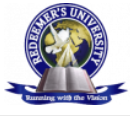
Redeemer's University
-

Mesoamerican University
-

Istmo University
-

Mariano Galvez University of Guatemala
-

Regional University of Guatemala
-

Galileo University
-

Francisco Marroquín University
-

Rafael Landívar University
-

University of the Valley of Guatemala
-

University of San Carlos of Guatemala
-

Technological Institute of Tlaxcala Plateau
-

Golfo University
-

Technological University of South Sonora
-

Technological University of Huejotzingo
-

Tizimín Institute of Technology
-

Chilpancingo Institute of Technology

